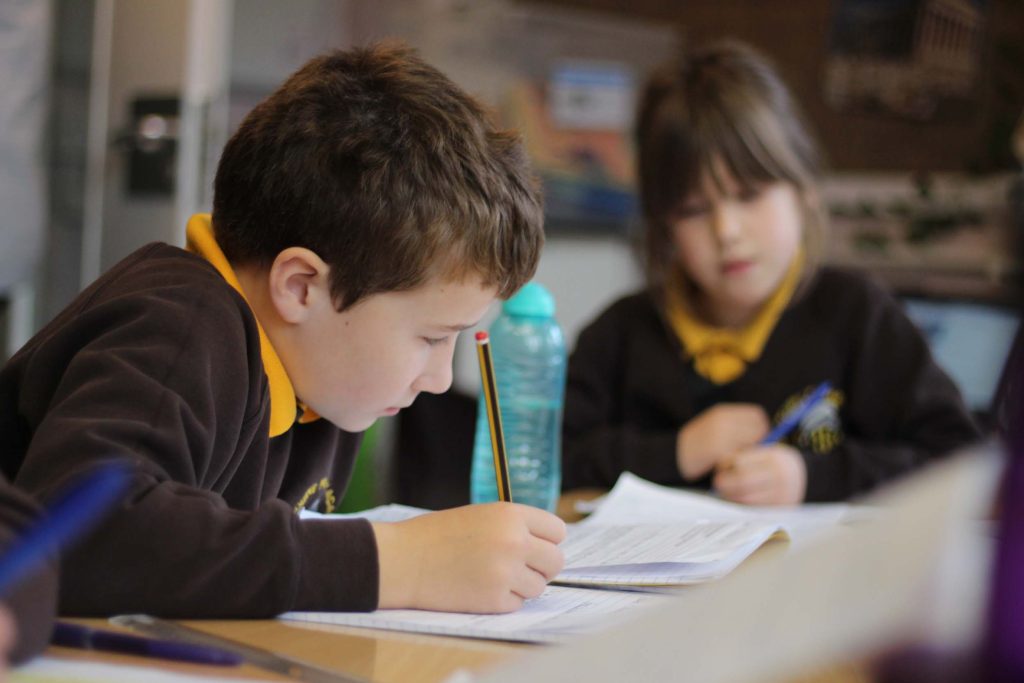
English, as a core subject, is a hugely important part of the curriculum at Honeybourne; we recognise the importance of speaking and listening, reading and writing in enabling all children to have a successful future.
High quality texts that are varied and exciting to read are the basis for English lessons. These texts have been carefully selected to ensure that they engage all pupils, no matter their gender, cultural background or ability.
Learning Journeys
Using these texts, teachers and senior leaders plan ‘learning journeys’.
- Initially, children engage in activities designed to immerse them in the text and develop their speaking and listening skills, alongside reading comprehension; this stage often involves: extracting vocabulary, debates, role play, hot seating, incidental writing, creative tasks and discussions around characters, settings and plot.
- Following this, children are taught the knowledge and skills needed to be able to write in the style of a chosen genre. This will often include developing understanding of: sentence structures, vocabulary, punctuation, spelling and grammar.
- Finally, children plan, write, edit, check and publish their piece of work. This phase enables all children to apply everything that they have been learning during the course of their ‘journey’. Children are always given an audience and purpose for writing, heightening engagement.
Reading
Reading at Honeybourne is heavily linked to the writing curriculum; in addition to the core texts in the primary English lessons, we also have daily guided reading sessions. These sessions are carefully prepared with the acquisition of new vocabulary and reading skills being the primary focus.
Teachers track the coverage of taught reading content domains to ensure children become skilled readers.
We firmly believe that Honeybourne is a ‘reading school’ where all staff foster a love of reading and the importance of becoming a reader. Sessions combine a mixture of whole class, independent and guided activities, which enable all children to share ideas and discuss key points, whilst allowing teachers to carefully question children to develop their understanding.
In Key Stage One and Early Years, phonics sessions are also taught daily to enable all pupils, at a young age, to develop and embed good decoding skills. We believe this gives our children the best start in developing a love of reading for years to come.
